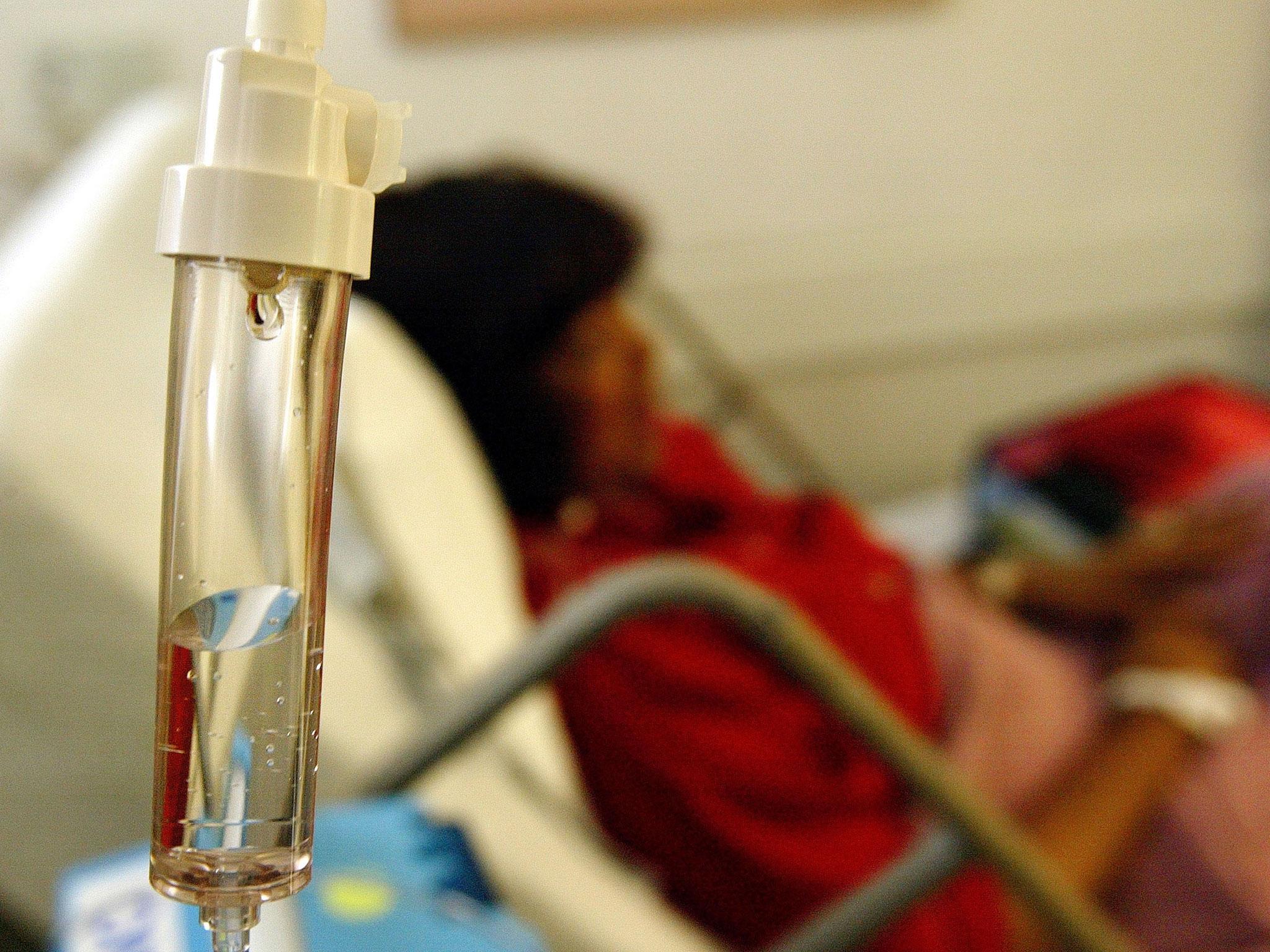Chemotherapy could spread cancer cells and lead to more advanced tumours, says study
There are more than 55,000 new breast cancer diagnoses each year in the UK

Chemotherapy is used to kill cancer cells and stop tumours from growing – but a new study suggests it could in fact help the disease spread, leading to more aggressive forms of cancer.
While the treatment was found to shrink tumours in the short term, chemotherapy drugs increase the chance that cancer cells will migrate to elsewhere in the body and may trigger a ‘repair’ system which allows them to grow back stronger, according to a team of US researchers.
Scientists at the Albert Einstein College of Medicine in New York examined the impact of chemotherapy on breast cancer patients.
They found the number of blood vessel ‘doorways’ that allow cancer to spread throughout the body was increased in 20 patients receiving two common chemotherapy drugs.
The most advanced stage of breast cancer, when it has spread beyond the breast to other organs in the body, is called metastatic breast cancer and is the most fatal form of the disease.
There are more than 55,000 new breast cancer diagnoses each year in the UK. Most are diagnosed at an early stage, but the cancer has spread in around 6 to 7 per cent of cases, according to Cancer Research UK.
The study’s lead author Dr George Karagiannis told The Telegraph the findings did not mean cancer patients should avoid chemotherapy, but rather they should be monitored to check if the disease was spreading.
Doctors could “obtain a small amount of tumour tissue after a few doses of preoperative chemotherapy” that would be analysed for signs of increased risk of this phenomenon – with women recommended to stop treatment before surgery if it is seen.
In experiments on mice, Dr Karagiannis and his colleagues found that the number of cancer cells circulating in the blood stream was increased when they received chemotherapy.
“In this study we only investigated chemotherapy-induced cancer cell dissemination in breast cancer. We are currently working on other types of cancer to see if similar effects are elicited,” he told the newspaper.
Chemotherapy can be taken as an oral tablet or through an intravenous drip.
Join our commenting forum
Join thought-provoking conversations, follow other Independent readers and see their replies
Comments